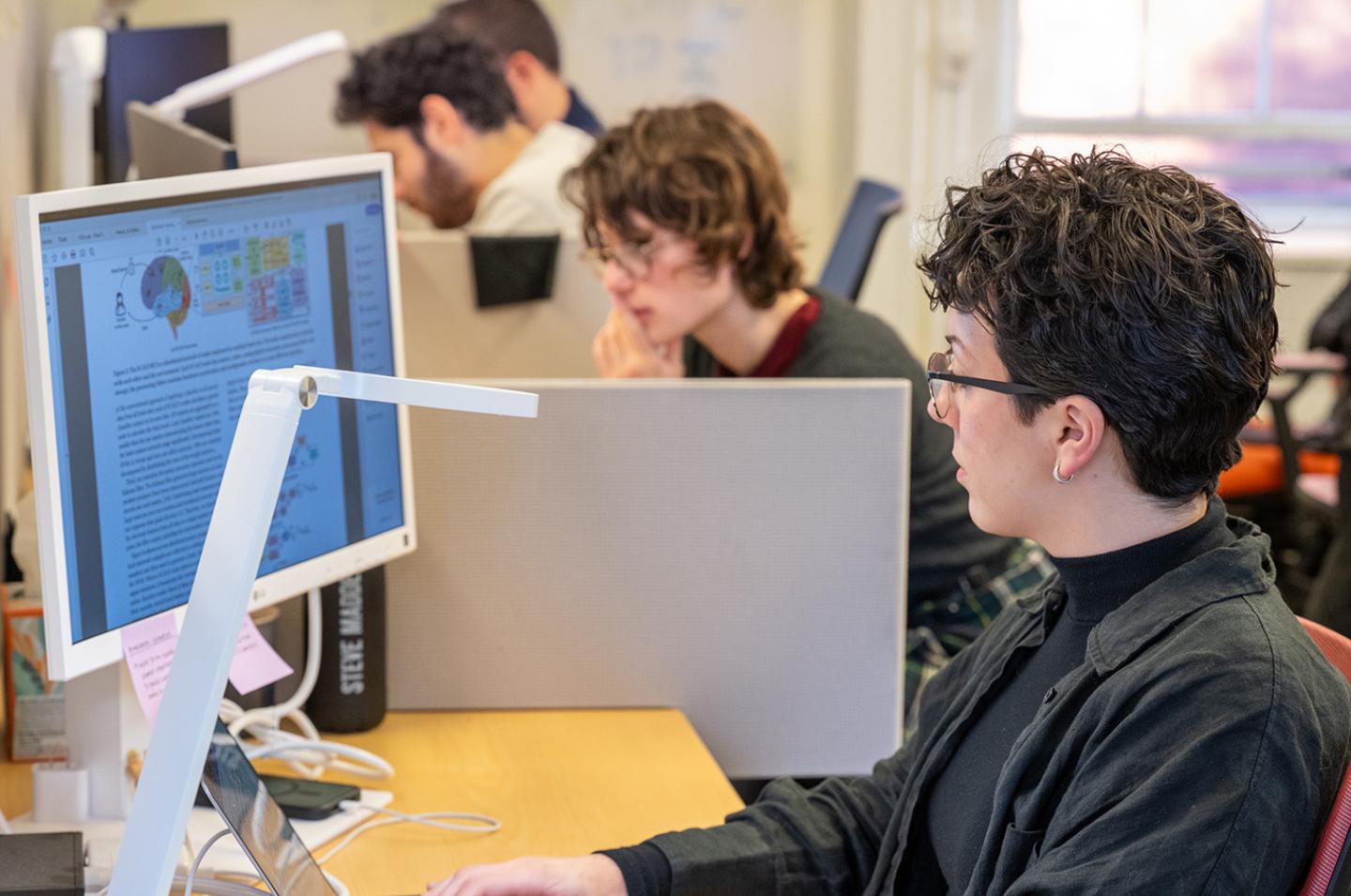In the digital age, what does it mean to be human? As technology shapes how we interact, blending the physical and virtual in ways that redefine personal identity and social connection, how do we know what is real? As algorithms determine the media we consume and wearable devices monitor our health and even predict our needs, how do we hold onto autonomy, privacy, and authenticity?
A new program from the Yale Digital Ethics Center will tackle questions like these. Called the de Vries-Sherif Program on the Future of Humanity and Technology, it will support teaching and research examining the intersection between the human condition and technological innovation.
The program was made possible by a generous gift from Tarek Sherif ’84, co-founder of Medidata and the life sciences and healthcare sector board chairman for Dassault Systèmes.
“I’m immensely grateful to Tarek for his philosophical vision and generous support,” says Luciano Floridi, founding director of the Digital Ethics Center. “This program will enable us to understand what it means to be human in the digital age and investigate the new challenges and opportunities we face in advancing human potential and shaping our future world.”
The program will support students ranging from first-years to postdoctoral fellows. Their work will follow the guiding principle of tangible impact, whether through publishing academic papers, gathering stakeholders at events, and producing policy reports for leaders in the public and private sectors.
“We live in a unique and unprecedented period of change, in which technology is redefining and challenging what it means to be human,” Sherif says. “The Digital Ethics Center, under Luciano’s direction, is uniquely positioned to help answer some of the most profound questions facing us in this dawning age of AI and other advanced technologies. I’m grateful that this meaningful work is underway, and I’m excited about the impact it will have on our shared society.”
Yale established the Digital Ethics Center in 2023 as a multidisciplinary hub to research the governance, ethical, legal, and social implications of digital innovation and technologies, along with their human, societal, and environmental impacts.
The center’s existing work includes research into regulations on brain implants, a conference examining the usage of large language models in education, and the spread of disinformation on Wikipedia. The additional funding from Sherif will enable the center to bolster these areas of research while following new lines of inquiry.
“The goal is to drive critical thinking around the intersection of humanity and technology,” Sherif says, “exploring at the highest level what it means to be a human in the twenty-first century, as well as answering questions around how to seize the opportunities presented by technological advancements without falling prey to unintended consequences that may strip us of our humanity.”
The research produced by the program will be inherently interdisciplinary, approaching topics like democracy, ethics in AI, and health privacy through legal, philosophical, environmental, economic, and technological perspectives. The project is in line with Yale’s broader goals of bridging academic silos to produce well-rounded and intellectually rigorous work addressing the greatest challenges of our time.
“Yale has a long tradition of informing the development of technology, examining their effect on people and society and providing solutions for their adoption and use,” says Yale President Maurie McInnis. “I am grateful for Tarek’s investment in this area of research and education. This gift will support students and faculty working to ensure that digital innovations will advance in ways that benefit humanity.”
